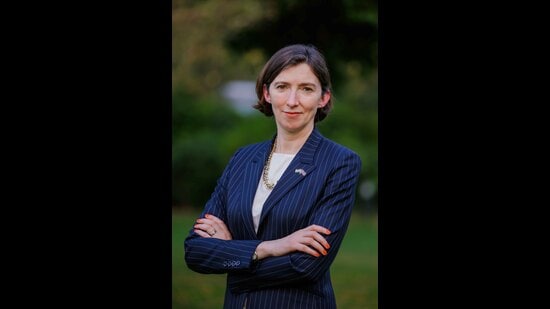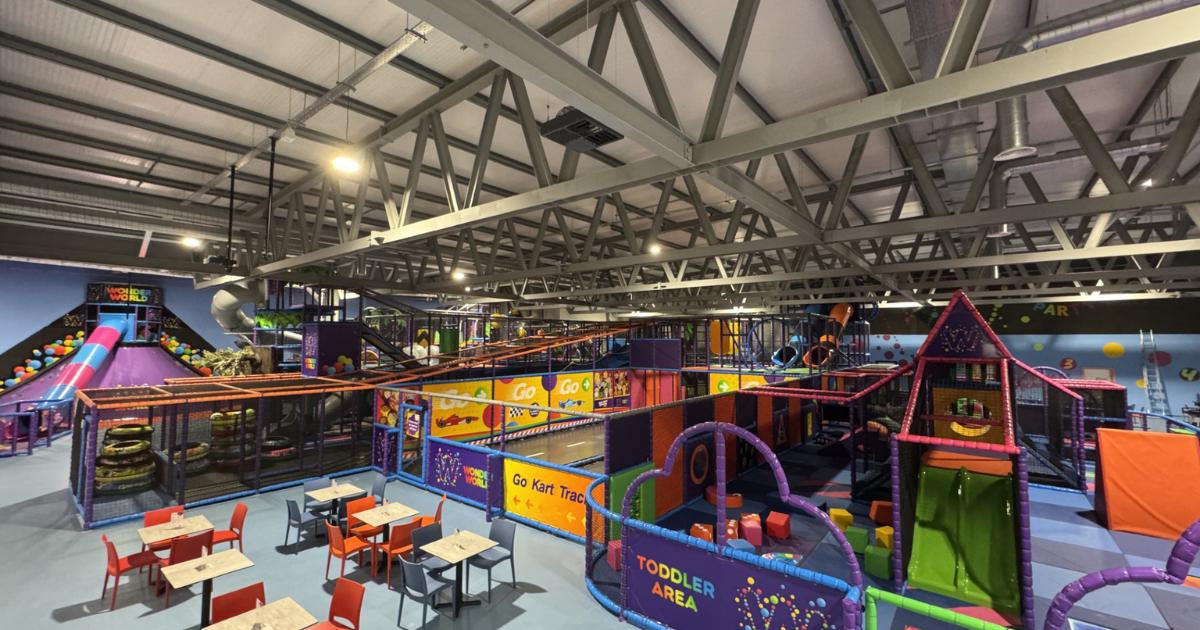New Delhi
Prime Minister Keir Starmer’s recent visit was aimed at giving impetus to economic ties with India even before the bilateral free trade agreement comes into force, resulting in fresh British investments of £3.6 billion into India, UK high commissioner Lindy Cameron said on Wednesday.
Defence was another area of focus, with the £350-million deal for lightweight multirole missile (LMM) systems announced during Starmer’s trip expected to lead to engagement with the Indian Army for “more complex weapons”, Cameron said in an interview.
Here are edited excerpts from the interview:
Q. What were the key trade and investment related outcomes of PM Starmer’s visit to India?
A: There were £1.3 billion of Indian investments into the UK and £3.6 billion of UK investments into India – fresh investments since Prime Minister Narendra Modi’s visit to the UK in July. This is following up on the trade deal and the unusual combination of two prime ministerial visits. PM Starmer came with a big business, sports and cultural delegation – the biggest we’ve brought to India ever. As PM Starmer said, let’s get going now. You don’t need to wait for the trade deal to come into force.
British businesses see India as an opportunity, not just to expand in India, but to go global. And actually the Revolut story is a really interesting one. [UK’s Revolut has plans to launch its payment platform in India as part of a global expansion]. There were over 10,000 jobs we created in the UK by the end of the visit.
Q: Is there a date when the free trade agreement is going to be in place?
A: Don’t ask me to bet on parliamentary processes, but I don’t think we’re expecting significant challenges. It’s just there’s a process that has to be completed.
Q. PM Modi described the India-UK partnership as a pillar of global stability amid global turbulence. How can the two sides work together to address the churn created by US trade policies?
A: It’s a tricky year, whether it’s the conflicts in Ukraine and Gaza, clearly a more turbulent economic year globally. But there’s a sense these are two democracies, both with governments elected last year for a five-year term, and therefore there’s a sense of predictability in the relationship. We have a lot of history but this is all about the future and the opportunity. From our side, it’s about British business understanding India’s potential and wanting to be part of that growth story. We have a massive interest in India being the biggest, best version of itself and of being part of that journey.
Q. What are the new projects under the Technology Security Initiative (TSI) and in sectors such as critical minerals?
A: In the summer we signed the Vision 2035 that has five pillars, including defence and technology. In technology, we established the UK-India Connectivity and Innovation Centre, a joint hub focused on developing an AI native network for 6G. We established the India-UK Joint Centre for AI for advancing trustworthy AI across health, climate, fintech and engineering biology. Then, we established the UK India Critical Minerals Processing and Downstream Collaboration Guild, [which signals] a shared interest in a more stable supply chain, thinking about things like recycling and processing. The other interesting thing was the critical minerals observatory, which is the first joint programme between Oxford and Indian universities to map where critical minerals supply chains come from. That’s the first of its kind in the world.
Q. How do India and the UK plan to build on the £350-million deal for supplying lightweight multirole missiles to the Indian Army?
A: In parallel with the PMs speaking at the Global FinTech Fest in Mumbai, we had the Indian aircraft carrier and the UK carrier exercising in Operation Konkan off the coast. We’ve done a number of things before, but this was a different scale of exercise. We had the LMM deal that guaranteed 700 jobs in Belfast, and we see that as the precursor to a longer term engagement with the Indian Army on more complex weapons.
We signed the implementing arrangement to advance defence and industrial collaboration on electric powered [naval] engines. I think there’s a real opportunity on the jet engine collaboration as well – we are clear that we think that would be a really exciting potential partnership.
Q. What are the prospects for cooperation in higher education, especially the setting up of campuses in India by UK universities?
A: The numbers are extraordinary. In the next decade, India needs 70 million graduates, of whom the system currently supports about 40 million. There is a huge demand and we have a lot of universities that have fantastic experiences with Indian students already, and see the potential to bring brilliant university education to India. India’s new education policy, which is rather groundbreaking, allowed universities to set up campuses here and really unlocked that potential.
There’s also potential for more collaboration on things like research and innovation. We already have amazing academic collaborations between individual researchers that gives you more of an institutional base for that. Again, we have shared advantages. India has massive scale, the UK is very good at some of the early stage research and innovation – that combination of being able to turn academic research into entrepreneurial ideas and businesses and then take it to scale. I think the combination of advantages we have is a real super power.
Q. What role does the UK see India playing in helping resolve the conflicts in Gaza and Ukraine, especially in light of an expected visit by Russian President Putin in December?
A: It’s always helpful to understand different perspectives on [the Ukraine] conflict. We’ve been very clear in our position in Ukraine, as PM Starmer said, we are very strong supporters of Ukraine since the beginning of the conflict and one of the leading countries in the coalition of the willing. I think we’ve also got a very strong relationship with India and we’re really keen to understand India’s perspective. I wouldn’t want to represent the Indian position. I think that’s for the government of India to do.
[In terms of Gaza], that was obviously quite a fast moving situation while PM Starmer was visiting. It’s something on which we exchanged views. I think everybody is just delighted that the hostages have been returned, that violence has come to an end. We are really delighted by the role that the various mediators, Egypt, Qatar, the US in particular, played in that conflict.


